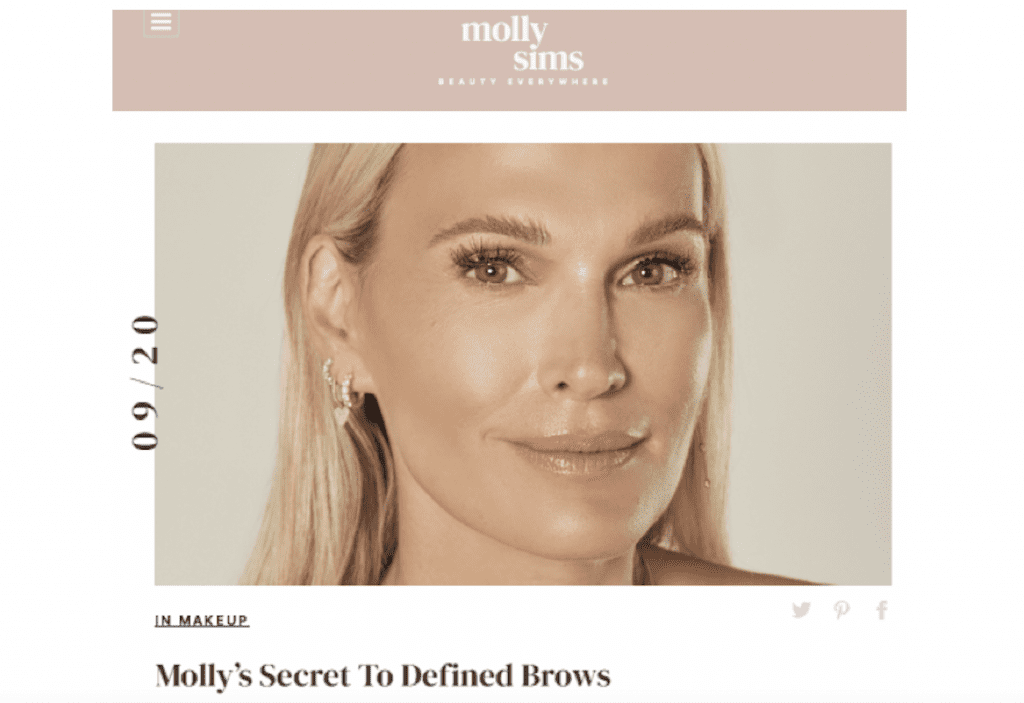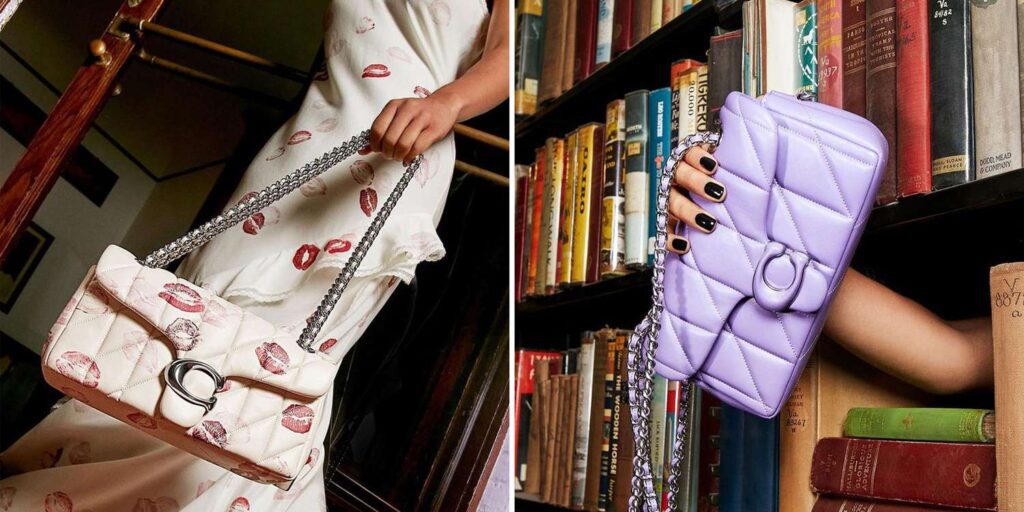A pending trademark infringement lawsuit that centers on an eyebrow “boosting” gel could have some serious implications for influencers and other famous endorsers. In an order this month, a California federal judge held that a party enlisted to endorse a product may be liable for trademark infringement for promoting a product with an allegedly infringing name. That is what Judge Cormac Carney of the U.S. District Court for the Central District of California stated in an August 6 order granting in part – and denying in part – the motion to dismiss that model-slash-beauty/wellness figure Molly Sims filed in response to the case waged against her and Rodan & Fields over their marketing of a product called “Brow Defining Boost.”
In the trademark infringement and dilution complaint that it filed in April, Petunia Products (“Petunia”) alleged that in July 2020, Rodan & Fields released its “Brow Defining Boost” eyebrow gel product, which Petunia claims infringes the “Brow Boost” trademark that it has been “extensively, exclusively, and continuously” using in connection with its Billion Dollar Brows brow primer and conditioner for nearly 20 years. As a result of such use, Petunia claims that “consumers have come to recognize and identify the BROW BOOST TRADEMARK” with its brand, and thus, “actual and/or potential consumers are/were likely to be confused and/or actually deceived by the defendants’ unauthorized exploitation” of the mark.
To make matters worse, Petunia asserted in its complaint that Rodan & Fields enlisted Sims to endorse the “Brow Defining Boost” product, including by “blogging about and promoting the infringing [Rodan & Fields] product” on her website. With such promotion in mind, Petunia named Sims in its complaint, asserting that like Rodan & Fields, she is also on the hook for direct and contributory trademark infringement, as well as trademark dilution, unfair competition, and false advertising.
Sims sought to escape the suit by way of a motion to dismiss in July, in which she argued, as summarized by Judge Carney, that “liability for trademark infringement should not cover third parties, like her, that author sponsored blogs about a product without confirming that the product does not violate trademark rights.” Among other things, Sims also asserted that Southern California-based Petunia failed to sufficiently show that consumers are likely to be confused about the source of Rodan & Fields’ product as a result of her blog post, or that she used the “Brow Boost” mark in commerce when she published a blog post about the product, and that if a court finds otherwise, “legitimate commentary” is likely to be stifled.

In the most striking part of his August 6 order, Judge Carney refused to dismiss Petunia’s direct trademark infringement and unfair competition claims; he tossed out the contributory trademark infringement and Cal. Bus. & Prof. Code § 17500 claims, but gave Petunia the opportunity to amend its complaint in connection with the latter causes of action, thereby, leaving room for Petunia to try to plausibly allege those claims for a second time.
Direct Trademark Infringement
Keeping the direct trademark infringement claim in place, Judge Carney held that Petunia did, in fact, establish that: (1) Sims “used [its] trademark in commerce,” and that (2) “her use was likely to confuse customers as to the source of the product.”
Addressing the first point, the court stated that despite Sims’ claim that Petunia did not sufficiently plead that she used the Brow Boost mark in commerce, it can be “reasonably inferred” from the plaintiff’s allegations and from Sims’ blog post, itself – which included a link to purchase the “Brow Defining Boost” product – that Sims’ use of the mark “was in connection with the advertisement of a product.” Given that Sims’ blog post is quite clearly “a paid advertisement,” Judge Carney held that “she thus crossed from protected consumer commentary” – such as the use of another’s mark in a post that is “critical of [that party’s] business” and that does not directly link to any commercial sites – “to commercial use.”
As for the key likelihood of confusion element, the court again sided with Petunia, pointing to the similarity between the name of the “Brow Defining Boost” product and the “Brow Boost” trademark, and beyond that, stating that in her sponsored blog post, Sims “promoted a product which competes with the plaintiff’s product, sounds like the plaintiff’s product, and is marketed through similar channels as those used by the plaintiff.” In regards to Sims’ argument that there is little likelihood of confusion because she explicitly identified Rodan & Fields (and not Petunia) as the source of the “Brow Defining Boost” product, the court was not persuaded, holding that “identifying Rodan & Fields as the source does not necessarily mean a consumer will not infer an affiliation between Rodan & Fields and the plaintiff.”
Still yet, the court shut down Sims’ argument against the potential for confusion on the basis that she “ignores the likelihood of reverse confusion, which ‘occurs when consumers dealing with the senior mark holder believe that they are doing business with the junior one.’” In fact, Carney asserts that by “attributing ‘Brow Defining Boost’ to Rodan & Fields in the blog post,” Sims may actually be “enhanc[ing], rather than eliminat[ing] the risk that future customers of the plaintiff might mistakenly believe they are dealing with Rodan & Fields.”
And with that in mind, the court refused to toss out the direct trademark infringement claim. Petunia has 14 days to amend its complaint to bulk up its contributory trademark infringement and Cal. Bus. & Prof. Code § 17500 claims.
Looking forward
While it “may be too early to tell whether adding influencers as defendants in trademark lawsuits will become the norm,” Buchalter attorneys Matthew Seror and Michael Worth state that such a potential shift “could carry with it a number of implications for both influencers and brands.” For one thing, it may call on influencers “to perform more due diligence on the products or brands they are agreeing to endorse,” and may require them “to insist on strong indemnity provisions in their sponsorship agreements” if they are not doing so already. Finally, it may even encourage more sophisticated influencers and/or their management “to explore whether this type of liability may be subject to – and covered by – business insurance.”
In any event, Seror and Worth assert that the rapid growth of the influencer marketing sphere – spending on which is expected to surpass $3 billion this year, according to eMarketer – and the adoption of this form of marketing by brands “opens up the potential for legal obstacles for brands and influencers,” alike.
The case is Petunia Products, Inc. v. Rodan & Fields, et. al., 8:21-cv-00630 (C.D. Cal.)











